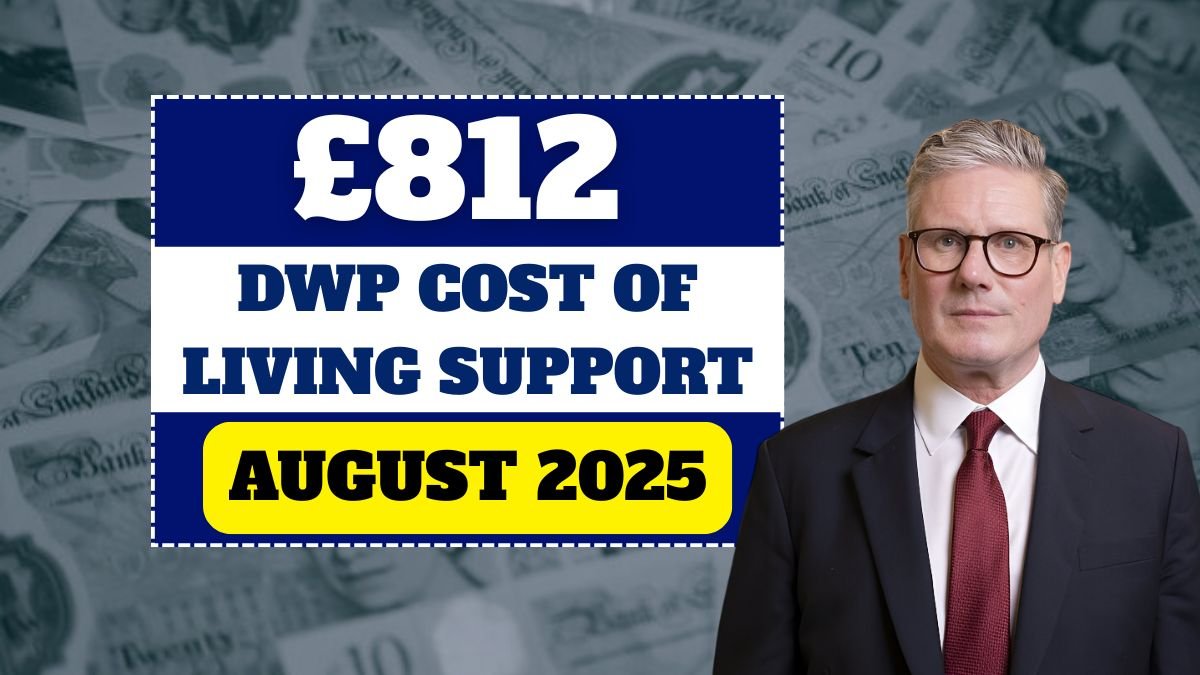Even in 2025, the cost of daily living remains a major concern for millions of families in Britain. Even though the government has claimed that inflation has returned to pre-pandemic levels, there has been no concrete relief in the prices of essential items for the general public, such as groceries, electricity, gas, rent and medicines.
According to a report, even today household income is unable to cope with these rising prices. While salaries have remained stable, the unexpected increase in the cost of living has plunged ordinary families into debt. People have been forced to buy even food items on credit. Another shocking figure is that in January 2025, about 7.3 million adults faced a serious situation like food shortage.
Not just food, the arrears of energy bills have more than doubled in the last five years. By the end of 2024, this figure reached £3.9 billion. In such a situation, it becomes important that people take full advantage of the government assistance schemes available.
Government support schemes overlooked—£23billion left unclaimed
You may be surprised to know that every year around £23 billion does not reach the people who are actually entitled to it. This amount comes under schemes run by the Department for Work and Pensions (DWP).
This situation persists because many people are either not aware of these schemes, or they think they are not eligible. Whereas the reality is that about one-third of the UK population, i.e., 24 million people, are already receiving some form of DWP support.
If you want to know which schemes you are eligible for, the benefit calculator created by ‘Policy in Practice’ can be a very useful tool.
Cost of Living Support of up to £812 – Who will get the benefit and how?
Now let’s talk about the most important part—the assistance amount of £812 to be received in August 2025. This payment is provided as a ‘Budgeting Advance Loan,’ which is for Universal Credit recipients who need money in an emergency.
This is a no-interest loan that is deducted gradually from your Universal Credit payments over two years. These loans are especially for situations when someone:
- needs to buy an essential household item
- replaces a broken appliance
- has a sudden medical or family emergency
The loan amount limits are as follows:
- £348: if you’re single
- £464: if you’re claiming as a couple
- £812: if you or your partner are receiving Child Benefit
This amount can be very helpful when a family is going through a financial crisis. Especially for households with children, the extra £812 can be a huge relief.
Payment dates in August 2025—remember the bank holiday
All DWP benefits will normally be paid on time in August. However, there is a bank holiday this month that is important to keep in mind.
Due to the summer bank holiday on Monday, 25 August 2025, people who were due to receive a payment on that day will now receive it on Friday, 22 August 2025. This rule will also apply to all benefits and state pensions.
Payments into these schemes will be affected:
- Universal Credit
- State Pension
- Pension Credit
- Child Benefit
- Disability Living Allowance (DLA)
- Personal Independence Payment (PIP)
- Attendance Allowance
- Carer’s Allowance
- Employment and Support Allowance (ESA)
- Income Support
- Jobseeker’s Allowance
State pension payments—dates based on NI number
The state pension goes straight into your bank account, like other DWP payments. It’s usually paid once every four weeks and payment dates depend on the last two digits of your National Insurance (NI) number.
Payment date by NI number:
- 00 to 19: Monday
- 20 to 39: Tuesday
- 40 to 59: Wednesday
- 60 to 79: Thursday
- 80 to 99: Friday
This system ensures that all people receive regular and systematic payments.
Benefit rates rise—how helpful?
All working-age benefits have been increased by 1.7% in April 2025. This increase has been made in line with the inflation rate of September 2024. All major schemes such as Universal Credit, PIP, DLA, Attendance Allowance and Carer’s Allowance are covered by this increase.
Also, the State Pension has been increased by 4.1%, giving an additional income of £472 per year. This increase has been made under the triple lock policy in which pensions are increased based on pay raises, inflation or 2.5%—whichever is higher.
2026 and beyond—new schemes and deductions
From April 2026, all Universal Credit claimants will be given an annual increase above inflation. The scheme will continue until 2029, and the first increase will be at least 2.3%.
But one important change is that the additional amount new claimants of health-related Universal Credit will receive will be reduced from £105 to £50. And this rate will also be frozen until 2029. This change will affect those who claim for the first time in the future. So if you are eligible, it is better to apply as soon as possible.
Conclusion: Your awareness is your strength.
Amidst rising inflation and household expenses, the assistance of up to £812 provided by the DWP can be like a lifesaver for millions of families. But this assistance will be beneficial only if you are aware and complete the necessary documents and process on time.
Use the government website and platforms like ‘Policy in Practice‘ so that you can know which schemes you are eligible for. Budgeting advance loans and other assistance schemes are very helpful for those who are going through financial crises.
FAQs
Q. Who is eligible for the £812 DWP Cost of Living Support in August 2025?
A. Individuals on Universal Credit who also claim Child Benefit may be eligible to receive up to £812 through a Budgeting Advance Loan.
Q. When will the August 2025 DWP payments be made?
A. Most payments will be made as usual, but due to the Summer Bank Holiday on Monday, 25 August, payments due on that date will be issued earlier—on Friday, 22 August 2025.
Q. Is the £812 support a grant or a loan?
A. It is an interest-free loan under the Budgeting Advance scheme, which is repaid through deductions from future Universal Credit payments.
Q. How do I repay the Budgeting Advance Loan?
A. The loan is automatically deducted from your Universal Credit payments over a period of up to two years.
Q. Are there any changes to how much DWP can deduct from benefits?
A. Yes, starting April 2025, the maximum deduction from Universal Credit for debts or loans is capped at 15% of the standard allowance, down from the previous 25%.


